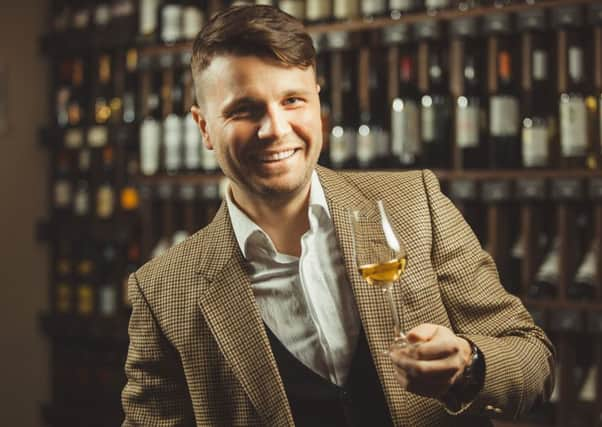Artificial ‘tongue’ can help tackle fake Scotch whisky trade, engineers claim


Engineers from the Universities of Glasgow and Strathclyde tested the reusable device, consisting of tiny slices of gold and aluminium arranged in a checkerboard pattern, on seven whiskies including Glenfiddich, Glen Marnoch and Laphroaig.
The tongue’s “tastebuds” successfully distinguished between the drinks with an accuracy greater than 99 per cent, including the same whisky aged for 12, 15 and 18 years.
Advertisement
Hide AdAdvertisement
Hide AdThe researchers observed how the metallic microscopic tastebuds absorbed light while submerged in the liquid, known as plasmonic resonance, to identify the different kinds of whisky in a study published in the Royal Society of Chemistry’s journal Nanoscale.
Counterfeit whiskies have become prominent in recent years, as bottles have become more widely auctioned and traded in second-hand markets.
Laboratory tests on 55 “rare” Scotch whiskies acquired on the secondary market revealed 21 to be fake, the valuation and consultancy service Rare Whisky 101 found last year.
Had the 21 fakes been genuine, they would have been worth an estimated £635,000, with one bottle valued at around £150,000.
The tests were conducted by the Scottish Universities Environmental Research Centre, using radiocarbon dating to assess whether the whisky had been distilled in the year claimed.
David Robertson, co-founder of Rare Whisky 101, advised buyers interested in purchasing alcohol on the second-hand market to assume all “antique” pre-1900 distilled whiskies were fake until proven genuine.
The world’s most expensive dram of whisky was found to be a fake in November 2017, after a Chinese millionaire paid £7,600 for 2cl of the purported 1878 Macallan in a Swiss hotel bar.
A Macallan Valerio Adami 1926 whisky was sold for £848,000 at auction in October last year, making it the most expensive known bottle of the spirit. Beyond their uses in identifying counterfeit drink, artificial tongues could be deployed in food safety testing, quality control, environmental monitoring and security measures, Dr Alasdair Clark from the university’s School of Engineering said.
Advertisement
Hide AdAdvertisement
Hide Ad“The artificial tongue could easily be used to ‘taste’ virtually any liquid,” he said. “We call it an artificial tongue because it acts similarly to a human tongue – like us, it can’t identify the individual chemicals which make coffee taste different to apple juice, but it can easily tell the difference between these complex chemical mixtures.
“We’re not the first researchers to make an artificial tongue, but we’re the first to make a single artificial tongue that uses two different types of nanoscale metal ‘tastebuds’, which provides more information about the ‘taste’ of each sample and allows a faster and more accurate response.”